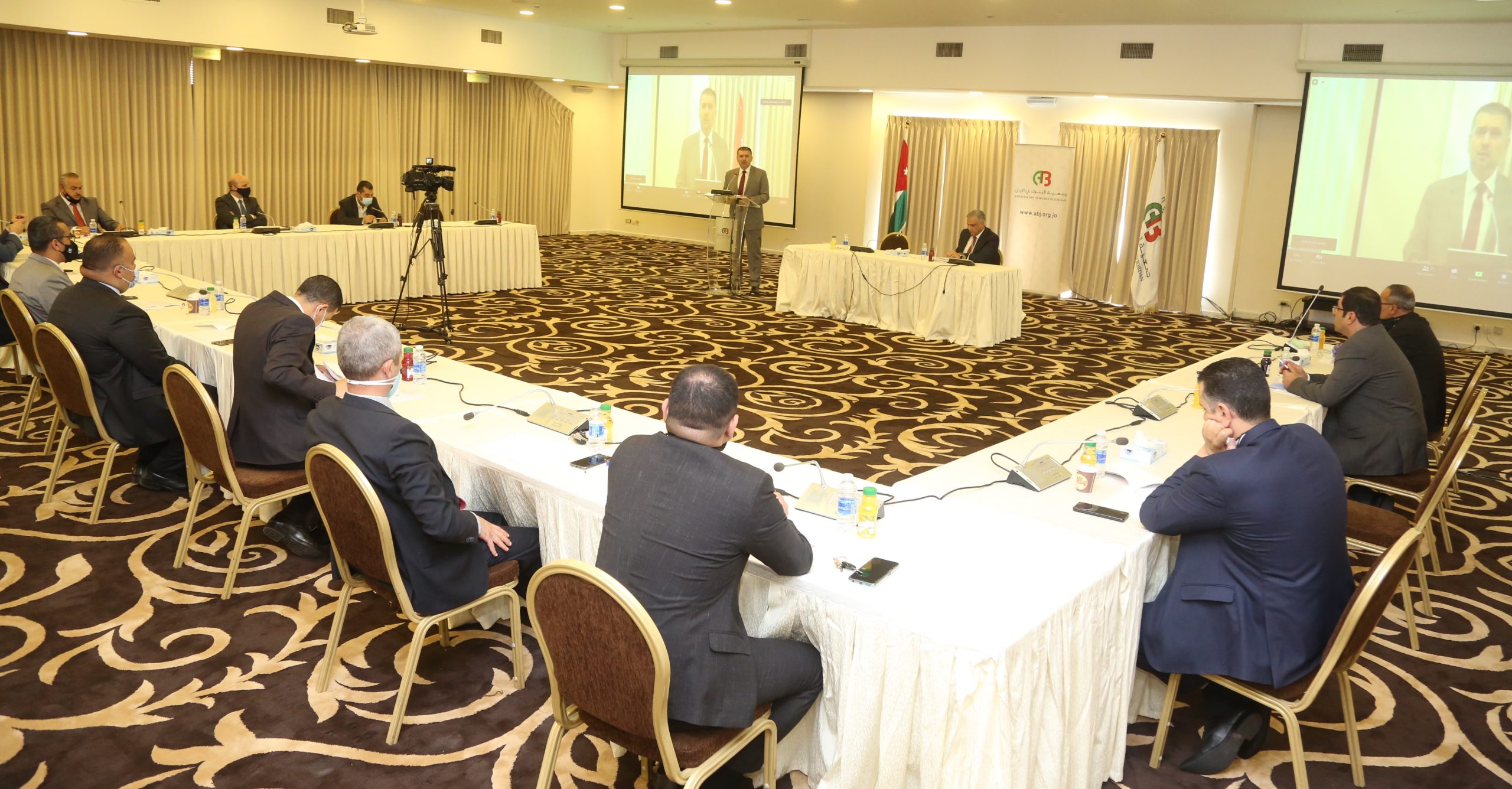
During the specialized workshop held by the Association of Banks for workers in the banking system
Nuzha: “Insolvency” is supportive legislation to stimulate economy and the last option to avoid liquidation.
Former corporate observer Ramzi Nozha confirmed that the insolvency law is an essential part of the legislation regulating local business environment, as it provides the legal framework that contributes to addressing financial problems and challenges facing companies and businessmen and is the last option to avoid resorting to compulsory liquidation.
This came during a specialized awareness workshop held by the ABJ for workers in the banking system, who participated in this event, which is the first of its kind. ABJ seeks to enhance its awareness role to remove obstacles in the Jordanian economy to be more competitive and attractive to local and foreign investments. The workshop was presented by the former corporate observer, Lawyer Ramzi Nozha, in the presence of the ABJ Director General Dr. Maher Al-Mahrouq.
Nozha pointed out that the insolvency law achieves the interest of the project’s owner, workers, employees, creditors and the comprehensive economic system. This means developing the system by facilitating the debtor’s money and distributing it to creditors to go through the stage of saving the project.
On the reasons for the insolvency law, Nozha said that the legislation is outdated and ineffective, the provisions are dispersed in several legislations according to the legal form of the debtor pointing to the absence of legislation regulating rescue operations, reorganization, restructuring, and the widespread non-use of settlement methods outside the courts, absence of professional, professional and skilled insolvency agents, priority rules in distribution to creditors scattered in multiple legislations, in addition to low debt recovery rates – the accumulation of bad debts.
During the workshop, Nozha explained the reference to the insolvency law and the regulations issued under it and said, “Jordan has used some international references for the purposes of enacting the law and the regulations issued under it, which are: the principles of effective regulations for creditors’ rights, the insolvency issued by the World Bank, and the legislative guide for the insolvency law issued by United Nations Commission on International Trade Law (UNCITRAL).
Nozha separated, according to the law, the scope of application to two sections: the entities and individuals who are subject to the law: insolvent debtors and anyone who carries out an economic activity (insolvency does not live dead), legal persons, civil companies and government-owned companies, merchants who own individual establishments, registered professionals who are licensed to work in accordance with the provisions of the legislation in force, and the activity that a person engages in with the intention of making a profit or gain which includes commercial, industrial, agricultural, professional, service or craft activity.
He said that the entities excluded from the law scope are as follows: banks, insurance companies, associations, clubs and natural persons who are subject to the provisions of the civil law, ministries, government departments, public official institutions, public institutions and municipalities, and liquidation procedures that take place in accordance with the provisions of the Companies Law for reasons not related to Insolvency, bankruptcy or liquidation procedures that began before the enforcement of its provisions – that is, the old one is still alive.
Concerning insolvency effects on the parties that the law allowed them to recreate, he pointed out that the actions of the insolvent debtor during the year preceding the date of declaring the insolvency were not enforced, and that the insolvency owed money may not be sold during the preliminary stage except within specific conditions and procedures and with the approval of the court and the suspension of hearing cases against the debtor, as well as stopping the hearing of cases against the debtor. Execution on the debtor’s money for a period of six months from the date of declaring the insolvency.
He further said: “stopping the seizure of the debtor’s money for a period of six months from the date of declaring the insolvency, stopping the calculation of interest and delay penalties on insolvency debts from the date of declaring the insolvency, and the possibility of terminating the contracts in force if this is in the interest of the insolvency subject to the approval of the court. Moreover, the possibility of rescinding sales contracts with the approval of the court, the possibility of terminating lease contracts with the approval of the court, and the possibility of amending or terminating work contracts with the approval of the court.
For his part, the ABJ Director, Dr. Maher Al-Mahrouq, said in his opening speech in the workshop, in which workers and employees of the association and legal staff in banks participated, either in attendance or via the video communication technology “Zoom” that this workshop comes as the first of a series of workshops that will be held by the Association on a number of issues with a legal dimension that need clarification and exchange of information and knowledge concerning the banking sector based on the association’s role in serving its members banks, spreading knowledge among them, keeping abreast of legislative developments and discussing them with a number of specialists and banking sector employees in the Kingdom.
He pointed out that the insolvency law approved in 2018, and published in the official newspaper, is in line with international standards and practices that require the necessity of a regulatory and legislative framework in the interest of the national economy and enhancing confidence in the investment environment.





